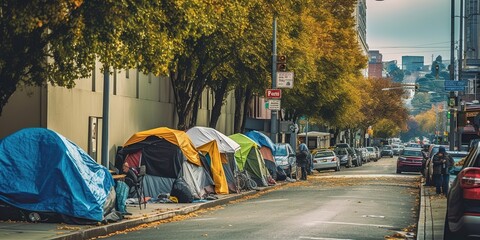I am sure you’ve seen your newsfeed bombarded with Vancouver’s current crisis of the downtown east-side. It is becoming part of our everyday norm to face a fellow citizen who is abusing drugs, and could or could not be prone to violence.
“Tent City” of the DTES is almost synonymous with Vancouver. It existed when I was younger, but has grown exponentially in the past 10 years. Tourists travelling through Vancouver goggle at the spectacle as if these humans were zoo animals. Media outlets, whether backed by corporate media or personal Instagram blogs are constantly reporting on the violence, second-hand fentanyl, and theft. All of these are substantiated claims… But it seems that this type of conversation is far greater than the conversation we should be having: Otherizing is halting any healing of what’s happening.
Every person abusing drugs is also dealing with mental health issues, it is a means to control the brain. 1 in 4 people experiencing homelessness have been in the foster care system. At the age of adulthood, they’ve been left to their own. This includes any trauma they might have unfortunately collected in the process.
 Otherizing refers to treating a person, or group of people different from you as “alien” and “not like us.” This has be seen in racist agendas, it can be seen when dealing with the police (or police dealing with us), and it can be seen in the scope of what is happening in our downtown east-side. This burden of drugs, illicit behaviour, and violence can be so far from someone’s norm that the only way their brain can process it is to otherize.
Otherizing refers to treating a person, or group of people different from you as “alien” and “not like us.” This has be seen in racist agendas, it can be seen when dealing with the police (or police dealing with us), and it can be seen in the scope of what is happening in our downtown east-side. This burden of drugs, illicit behaviour, and violence can be so far from someone’s norm that the only way their brain can process it is to otherize.
I got into a conversation with a friend recently about this topic. They regaled me with a story about their European friends coming to Vancouver for a visit, and wishing to drive through the DTES to see what all this was about. I unfortunately could relate with visitors I’ve had. My friend and I agreed that part of our duties as Vancouver citizens was to educate our friends about the moral repercussion of gawking at this part of the population. This isn’t a circus performance, these are people who have been hit with trial after trial after trial and have found solace in drug and alcohol use. Newcomers will lay claim that our government perpetuates this carnage by offering safe-injection sites. This led me to a different thought.
Perhaps we in Vancouver are seeing a growing number of mentally-ill, drug-abusing, without a home, members of our society because we offer a safe space for them to reside. Vancouver is in the middle of a very important conversation. A conversation that many cities across North America find themselves “burdened” with. While it may not be quaint for the image of Vancouver, it seems as though there is safety in residing here. Maybe this is because we are meant to be the hub that figures out what is the best and most empathetic way to help. I feel this starts with seeing this part of the population as they are, humans just like you and me.
In my previous article “True Crime watchers love violence” I spoke about the Netflix television series Mindhunter. While this show holds immense space for the shocking drama, it also carries harsh notes of truth. In order to help, we must first understand what creates a “deviant” mind. Very rarely is someone born innately bad. This is where our current media gets it wrong.
Vancouver news conveys a strong notion of what we must do to “clean up our streets”. There are some voices that speak out about trauma as the root cause, but it is not at the forefront of conversation in our media. The answer is not to dominate the streets and forcibly eliminate the issue, sweep it under the rug. The answer to heal comes from understanding its beginning. This should come with a more direct conversation with those personally experiencing the drug epidemic in Vancouver.
Seeking healing help from someone who has never had to heal the same way – sticks out like a sore thumb. I think the best way to understand what is needed is to listen to those who have experienced it themselves. Where is this conversation in our corporate media?
Written by: Volante Matheson
Contact: vmatheson1@my.bcit.ca





